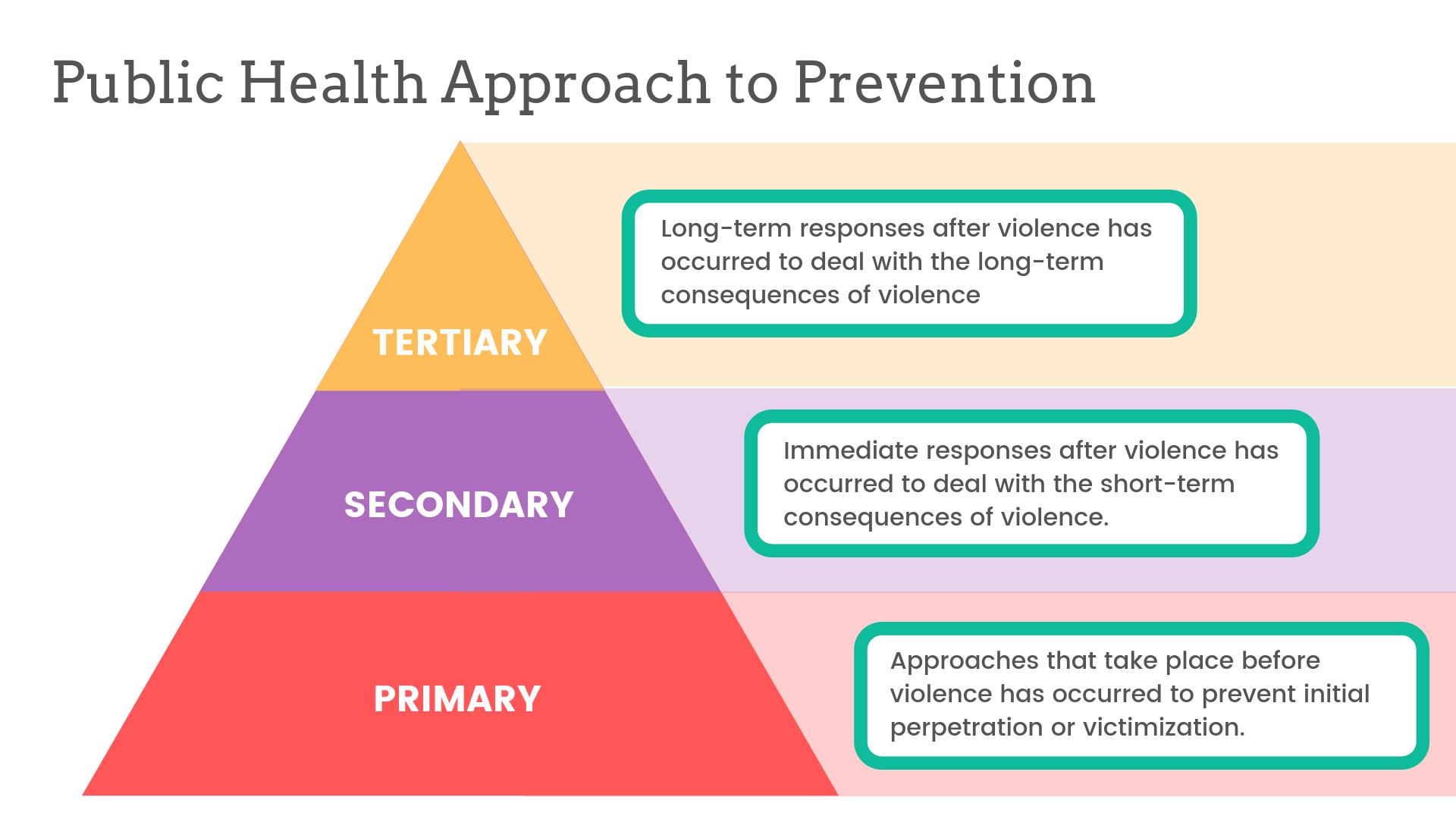Campus Advocacy, Resources, & Education (CARE) utilizes the Centers for Disease Control and Prevention (CDC) public health approach to interpersonal violence prevention. CARE's prevention education focuses largely on primary prevention that is aimed at the entire campus community. This includes multi-layered approaches to prevention including incoming education for new members to our campus community and ongoing education and training for students, staff, and faculty. CARE's confidential advocacy acts as both secondary and tertiary prevention providing both short-term crisis management and long-term support to survivors who have been impacted by interpersonal violence.
Definitions
Primary Prevention
Approaches that take place before violence has occurred to prevent initial perpetration or victimization.
Secondary Prevention
Immediate responses after violence has occurred to deal with the short-term consequences of violence.
Tertiary Prevention
Long-term responses after violence has occurred to deal with the long-term consequences of violence.
